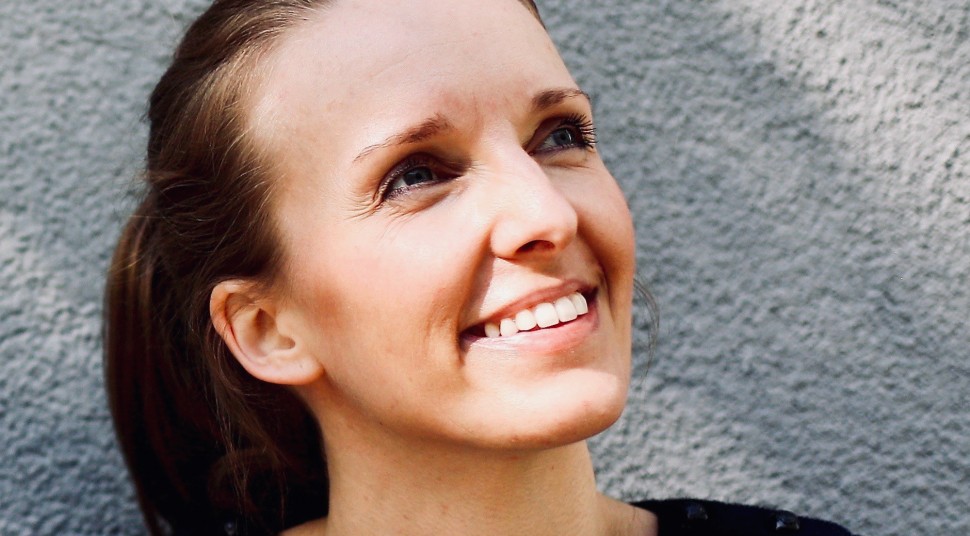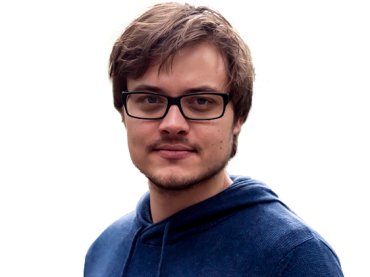Interview with Anna Kaiser about working worlds of the future
Today we will be talking about the working worlds of the future. And there is hardly a better person to discuss these issues with than Anna Kaiser. She is the founder and CEO of Tandemploy, a nascent, up and coming company that has been revolutionizing the world of work since 2014. In the meantime, Kaiser has received over 20 awards for her work. Together with her team, she develops software that helps corporations and SMEs to put new structures and working models into practice – making them fit for digital transformation.
In her own company, she exemplifies what different approaches to work can look like: She has introduced a job sharing role for the management position, while all employees work in flexible working models and interdisciplinary teams. Most recently, they abolished the rigid 40-hours-per-week positions Tandemploy. Anna is discussing and championing her ideas for networked, innovative and future-oriented working worlds at top political and the highest political and trade union levels. She is active on the advisory board "Junge Digitale Wirtschaft" of the German Federal Ministry of Economics and Technology and a member of the HR-Tech ethics advisory board. Anna Kaiser also heads the "Working World of the Future" department of the German Digital Industry Association.

Anna Kaiser founded Tandemploy in 2014 and has been making companies fit for digital transformation ever since. Photo: Anna Kaiser, Tandemploy
Anna, you were recently appointed as the new Chairwoman of the “Working World of the Future” department at the German Digital Industry Association. Congratulations! Now let's take this up. What will the working world of the future look like for you?
Anna Kaiser: Thank you for your good wishes! Actually, the department should be called "Working World of the Present", because when you use the word future it always sounds as if it's all still far away. But we are right in the middle of the digital transformation and it is NOW that we are called upon to take advantage of the opportunities that are arising. Entirely new areas of responsibility and professional fields are emerging, while others are changing massively or may prospectively be disappearing entirely in the future. Networked and interdisciplinary work is becoming essential.
I am convinced that change competence is the most important aspect of all, i.e. the ability to be able to adapt to new requirements, new customers, colleagues and technologies and to use this for one's own further development. Companies must create structures in which change and learning is possible – they must become agile! New Work in its best form would be to see people as a whole, not only with their work-related talents and needs, but also with their interests and areas of responsibility outside the organization. If we can find personal happiness and nevertheless manage companies – if we can achieve this, I will not worry too much the future of work.
More and more people are emphasizing flexible working hours and a good work-life balance. Do you regard companies as being obligated to provide this?
Kaiser: Smart companies have long recognized that flexibility and satisfied employees are not a luxury that they indulge in when they want to be particularly nice to people. Quite plainly stated, this is an economic necessity. It's no longer a secret that employees who feel that they are perceived and valued, who are allowed to take responsibility and who also have time for things away from work also perform better in the work context.
Our team is the best example of this. We have abolished the 40-hour week, and all of our colleagues are working flexibly in different constellations, exactly as it suits their lives. This works perfectly, you just have to want to do it!
There are already many companies that are advertising with New Work. How do you see the actual reality? After all, New Work is more than just a foosball table and sofa corner.
Kaiser: Unfortunately, all sorts of things are now being labelled as New Work, even if they have little to do with the original idea of the concept. The core of the concept is that individuals with their genuine talents and needs are squarely back in focus. If companies manage to awaken these strengths and capabilities, and use them in part to their advantage, everyone will win in the end. But this requires that I first listen and get to know the people who work for or with me on a daily basis. To ask what somebody is genuinely capable of and wants to do and to translate the answer into suitable task fields and work concepts has a much greater effect than a foosball table ever could.
You at Tandemploy are regarded as one of the pioneers of New Work. Could you explain to us briefly how this came about and what Tandemploy actually stands for.
Kaiser: We started out as a job-sharing platform. This meant that people could come together and then apply for a job together. That was quite revolutionary at the time (laughs). In the meantime, however, we have developed further and launched a software solution that supports companies in their very own digital transformation. It helps to identify and utilize existing skills in the company and to establish the necessary flexible structures. Employees can make their talents visible and network with colleagues across all departments in a targeted manner, whether for a mentoring duo, job sharing, generation exchange, job rotation or simply a lunch date.
At the same time, companies can use the matching tool to find suitable candidates for projects or participants for event formats. So it's all about being seen, with benefits for all involved – New Work at its best, so to speak. In addition, we are committed to advancing a networked, innovative and future-oriented working world at political and trade union levels, for example on the "Junge Digitale Wirtschaft" advisory board of the Federal Ministry of Economics and Technology or the HR Tech ethics advisory board.
How do you regard the ECJ ruling on mandatory working time recording in connection with the working worlds of the future?
Kaiser: Based on my own experience, I would naturally argue that the regulation is totally outdated. For companies like ours, where everyone works flexibly and on a basis of trust, it is a bureaucratic monster that devours valuable time. But I also realize that we are still the exception rather than the rule. Nevertheless: In principle, it only treats the symptoms of an ailing "working world" rather than tackling the cause. And that lies in rigid structures and corporate cultures that are not humane.
All the more reason for us to continue working at full speed towards a transformation of the working world towards a world in which everyone can help shape and design developments, and work in a self-determined manner. A world in which a good team spirit and jointly achieved results count for more than hours on the time clock.
Anna, thank you very much for the interview and good luck in continuing to revolutionize our working world.

